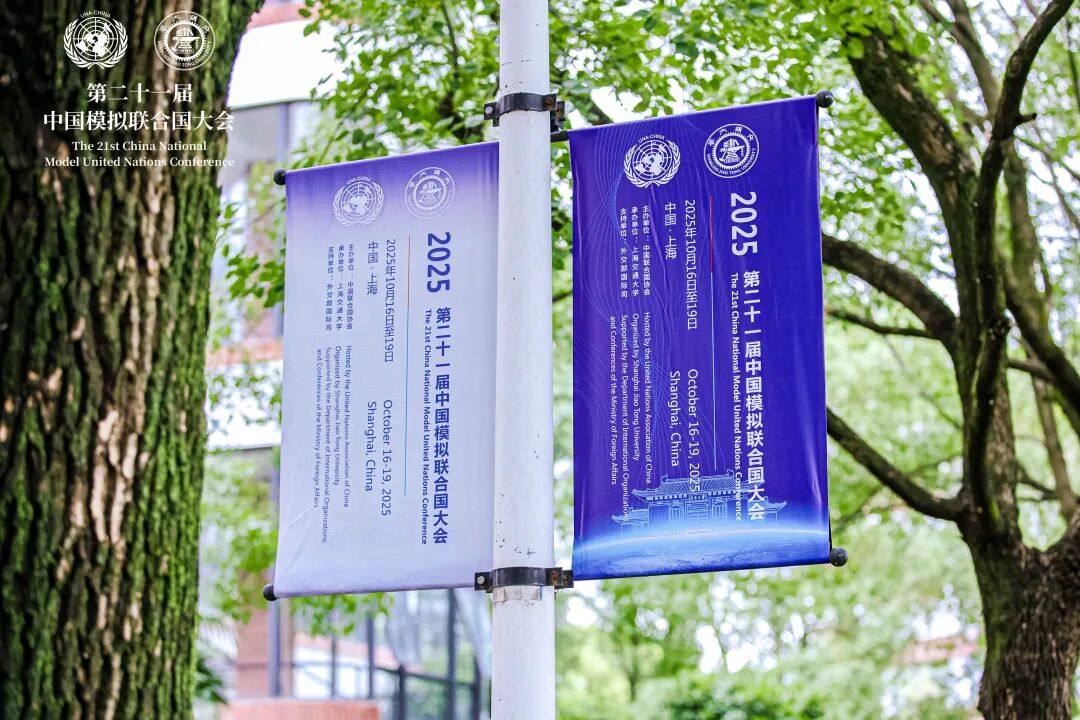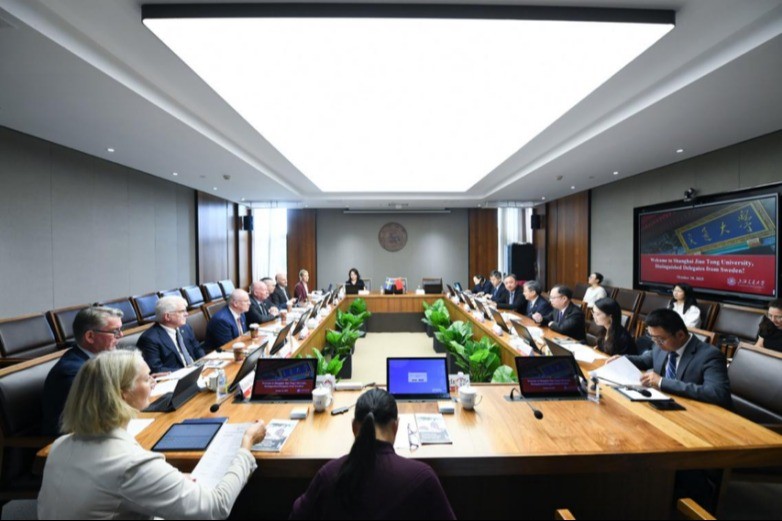To mark the 80th anniversary of the United Nations, the 21st China Model United Nations Conference was held at Shanghai Jiao Tong University from October 16 to 19. The event was hosted by the Chinese People’s Association for the United Nations, supported by the Ministry of Foreign Affairs’ Department of International Organizations, and organized by SJTU. Over four days, more than 400 student delegates, observers, and advisors from over 100 universities across the country took part.
This year’s conference simulated six UN bodies and meetings. Debates and draft resolutions focused on artificial intelligence and international peace and security, multilateral trade, the right to development, the Israel–Palestine issue, the energy transition, and cyber governance. More than ten seasoned former ambassadors, senior diplomats, and former officials of international organizations served as guest speakers or judges.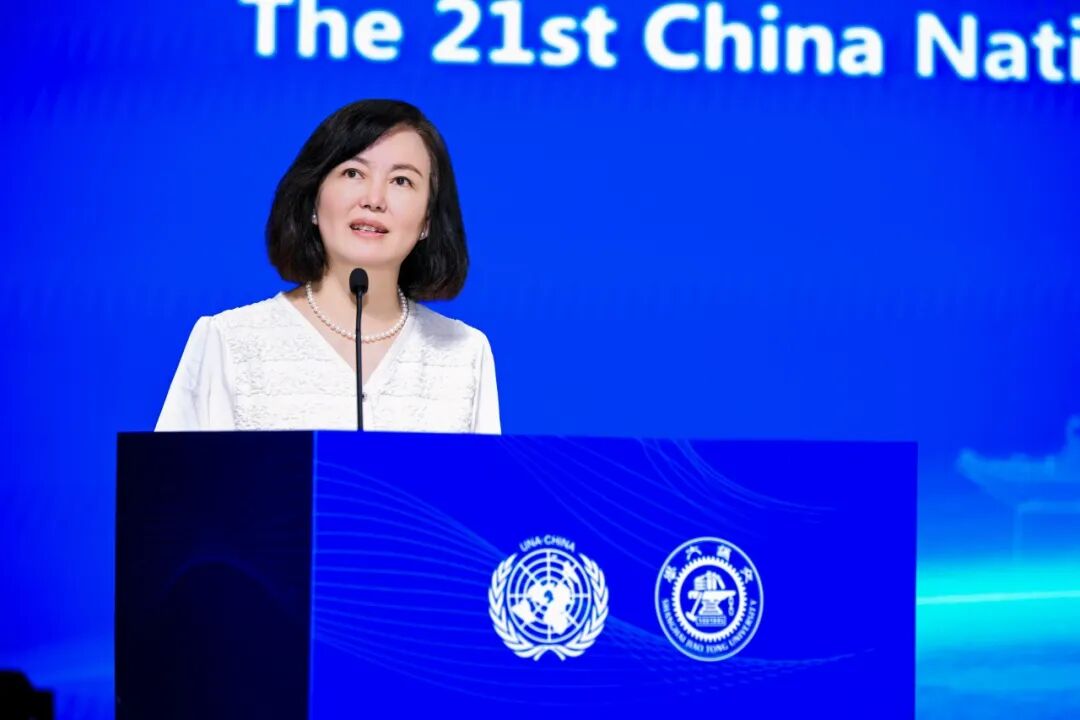
Wenli Hu, Vice President and Director-General of the Association, said that over the past 80 years the UN has provided vital safeguards for human progress. She encouraged students to cultivate patriotism, build a solid foundation, master international rules, aim high, walk the right path, and take concrete action, so they can help build a community with a shared future for humankind.。
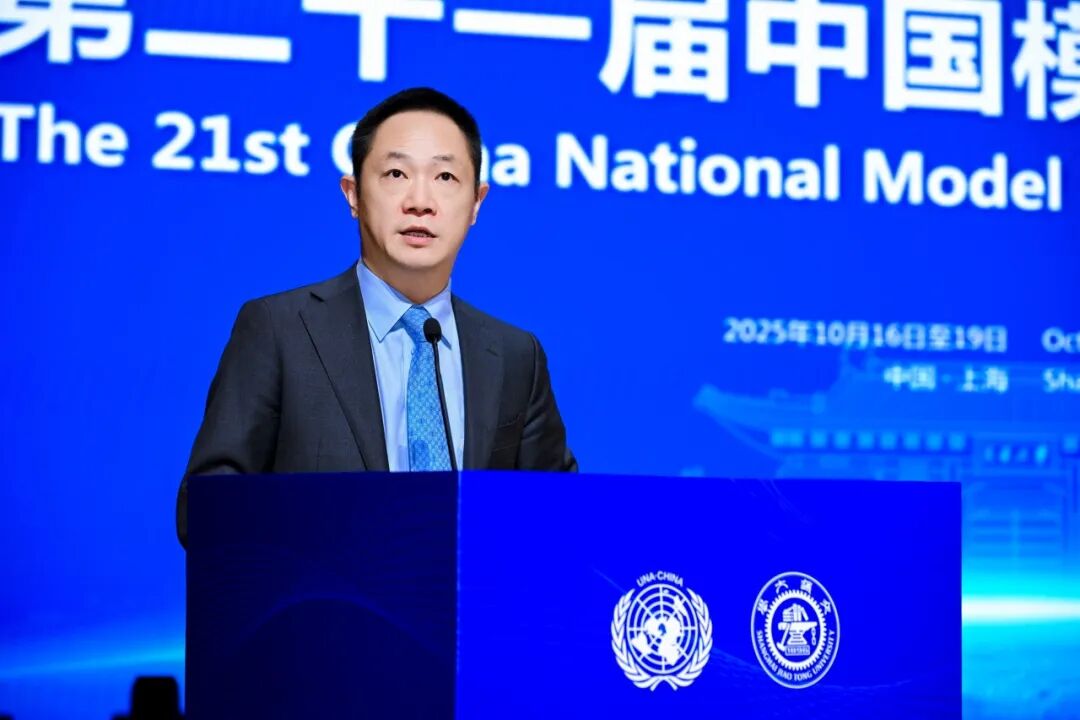 Counselor Kai Chen of the MFA’s Department of International Organizations noted that China is a builder of world peace, a contributor to global development, and a defender of the international order. He added that the Association pioneered Model UN in China, giving students a key window into the UN and multilateral diplomacy.
Counselor Kai Chen of the MFA’s Department of International Organizations noted that China is a builder of world peace, a contributor to global development, and a defender of the international order. He added that the Association pioneered Model UN in China, giving students a key window into the UN and multilateral diplomacy.
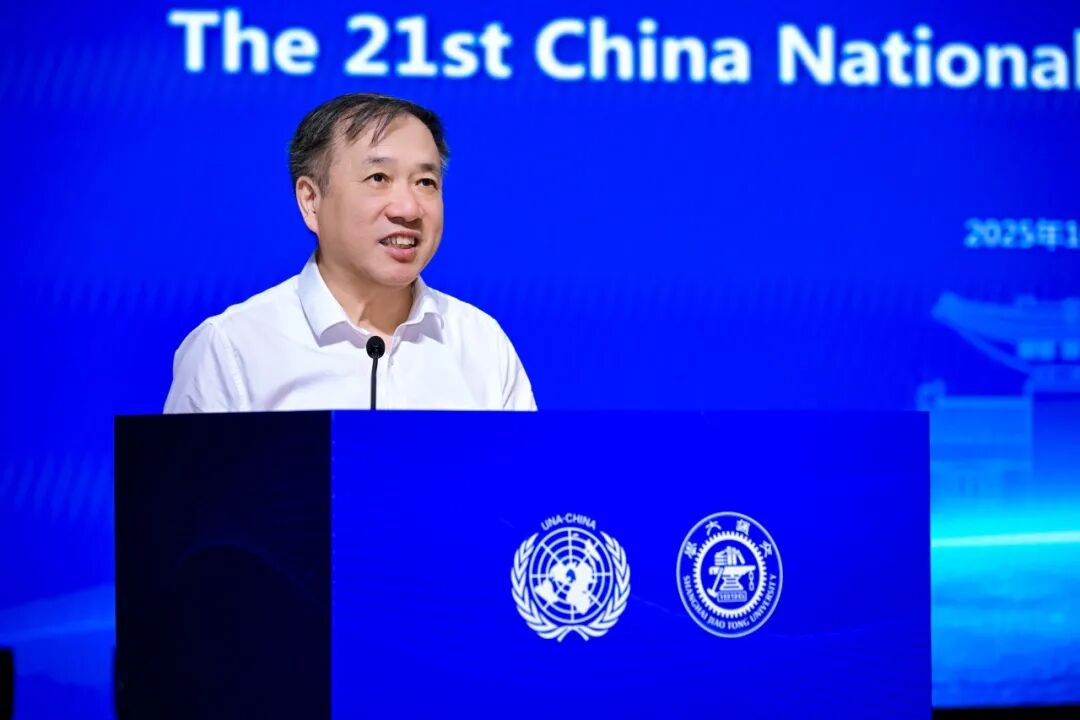
Zhenbin Yang, Party Secretary of SJTU, said the university has long been a bold pioneer and firm practitioner of educational openness. SJTU advances reforms in education, teaching, and research, keeps talent cultivation at the core, and strives to build a global hub for talent. He hopes students will use this conference to join the debates and negotiations, offer creative and workable ideas for global challenges, and contribute to national rejuvenation and the community with a shared future for humankind.
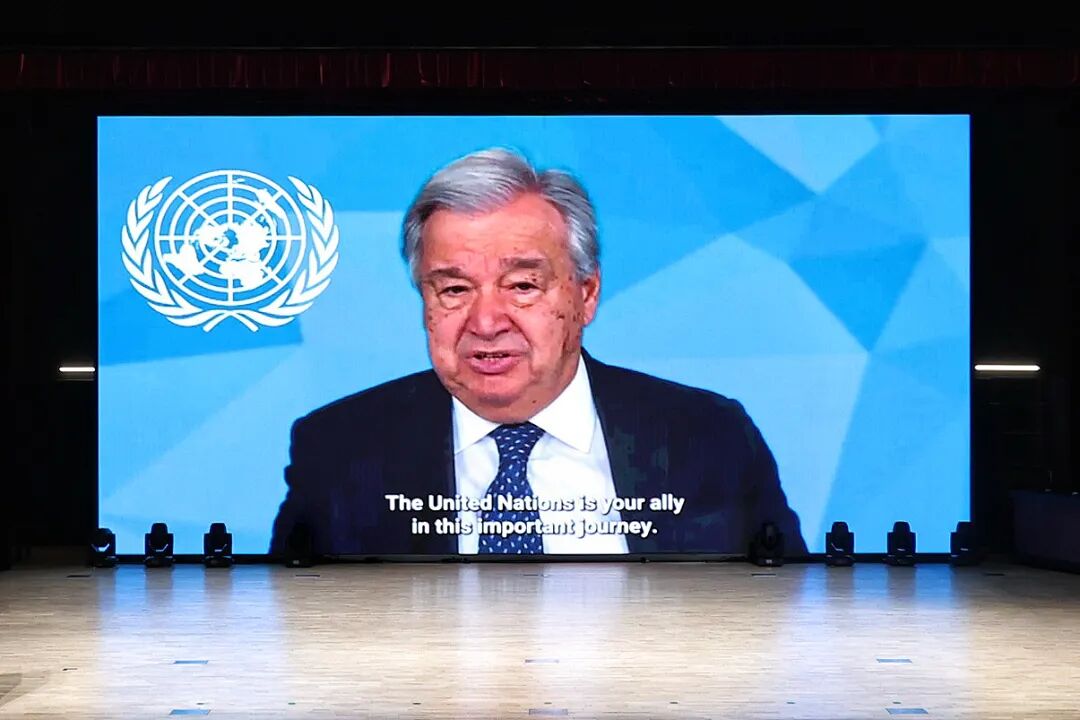
UN Secretary-General António Guterres sent a congratulatory letter and a video message. He said the UN needs young people’s ideas, energy, determination, and voices. Their views must be heard in decisions, strategies, policies, and actions. Model UN helps young people build the core skills the UN needs. He encouraged participants to be agents of positive change and to work for a future of peace, dignity, and prosperity for all people, everywhere.
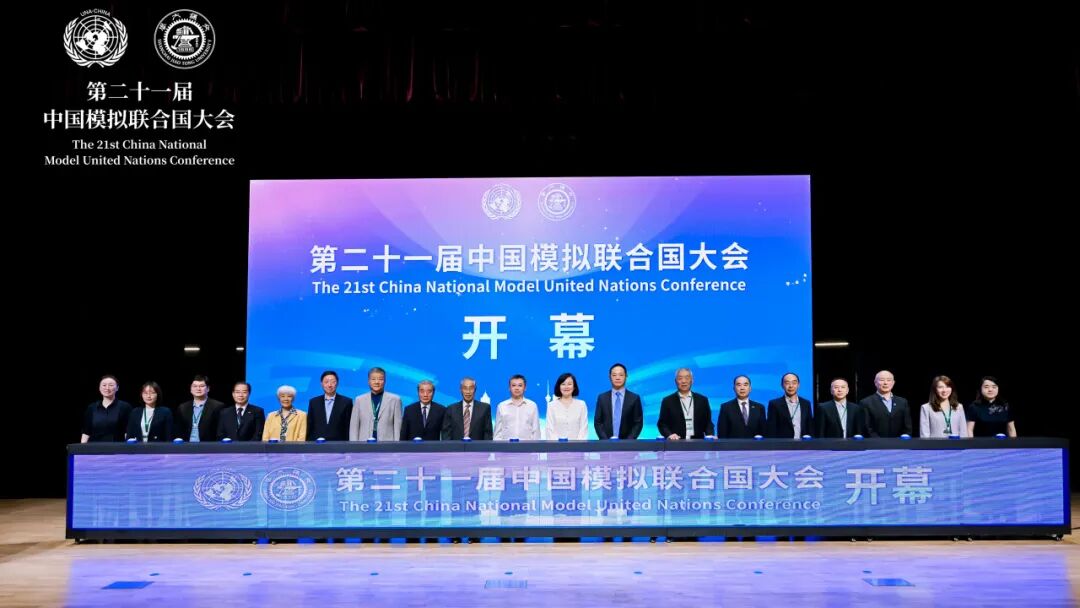
Guests jointly launched the 21st China Model United Nations Conference.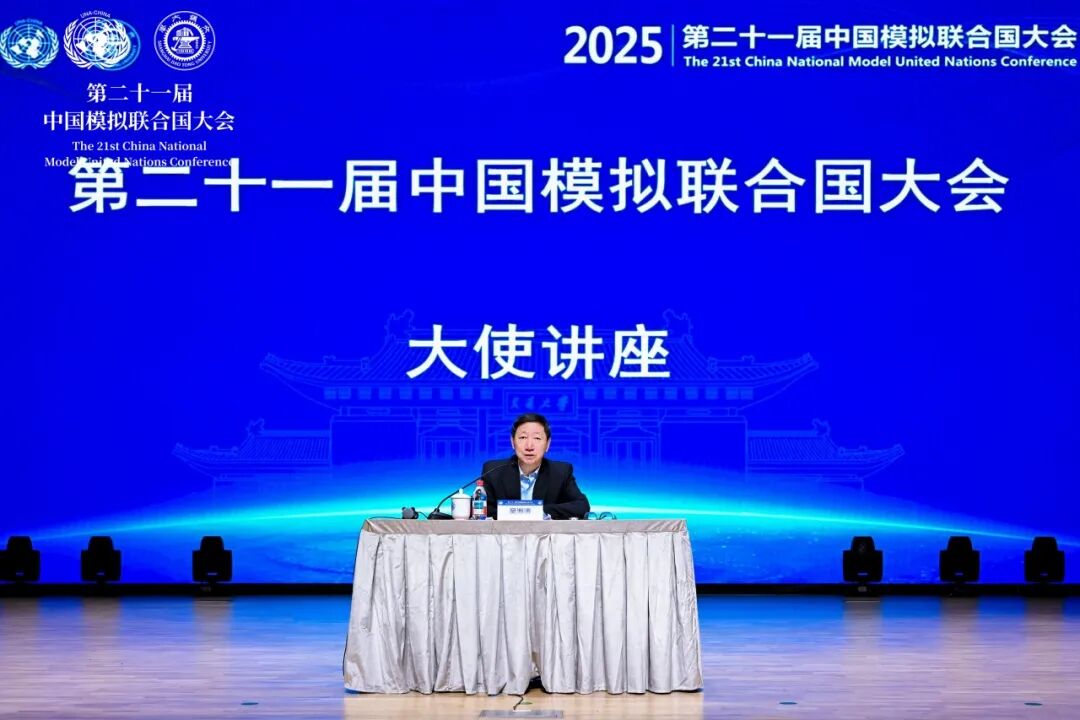
After the opening ceremony, Haitao Wu, former Ambassador to Spain and Andorra and former Deputy Permanent Representative to the UN, delivered a lecture to the delegates. 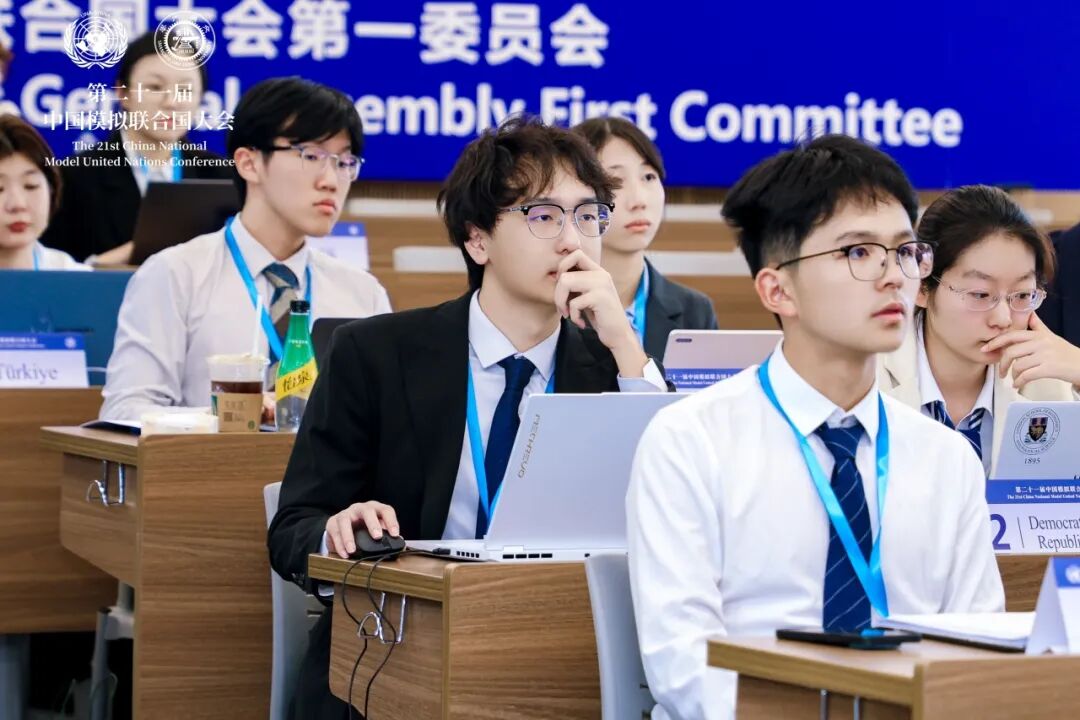
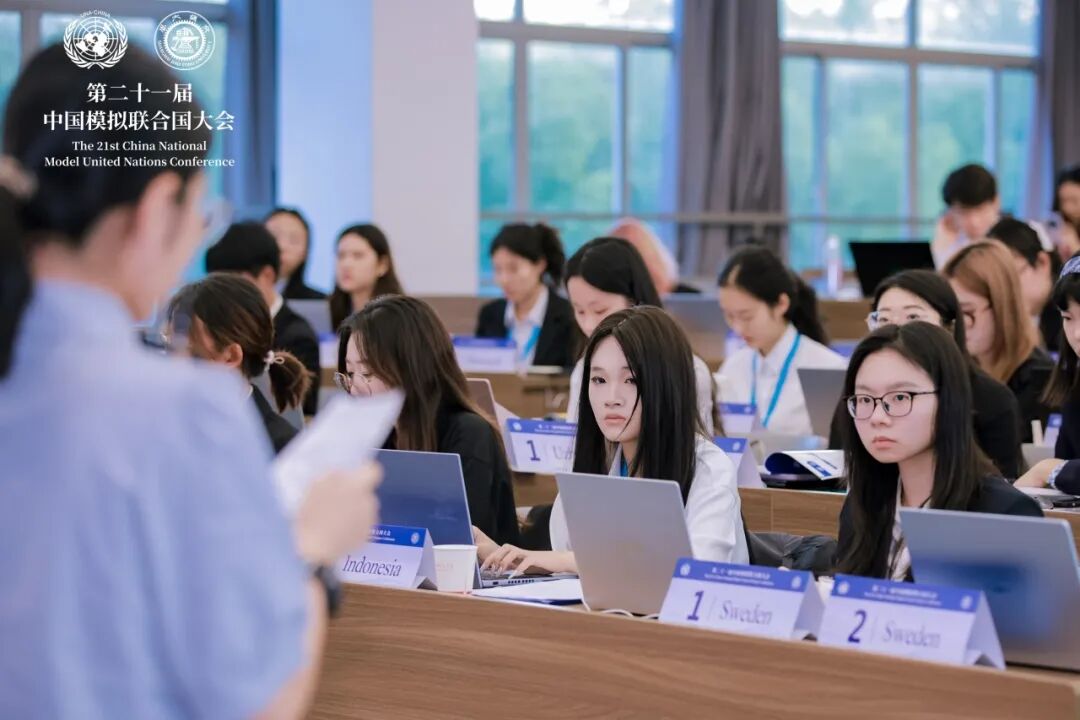
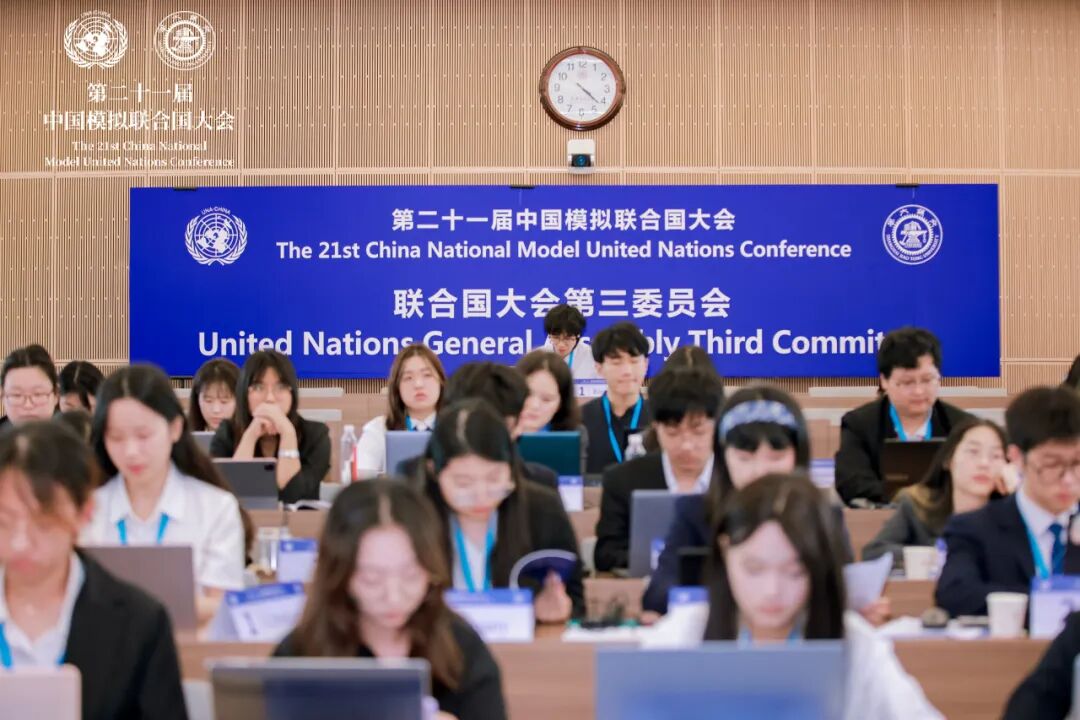
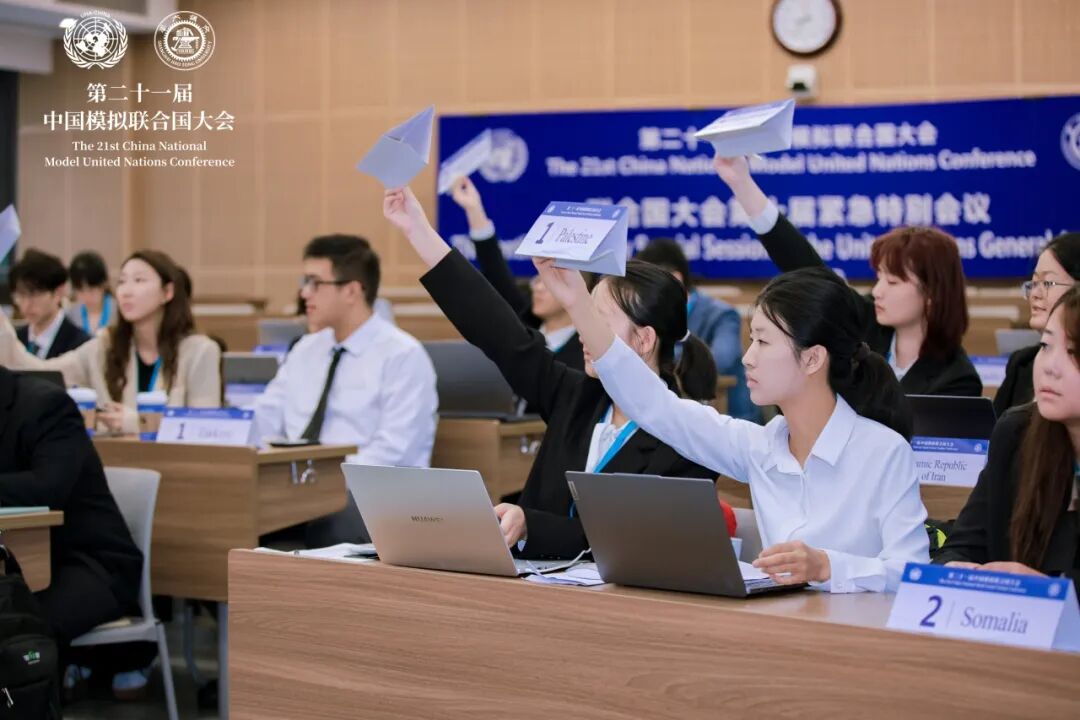
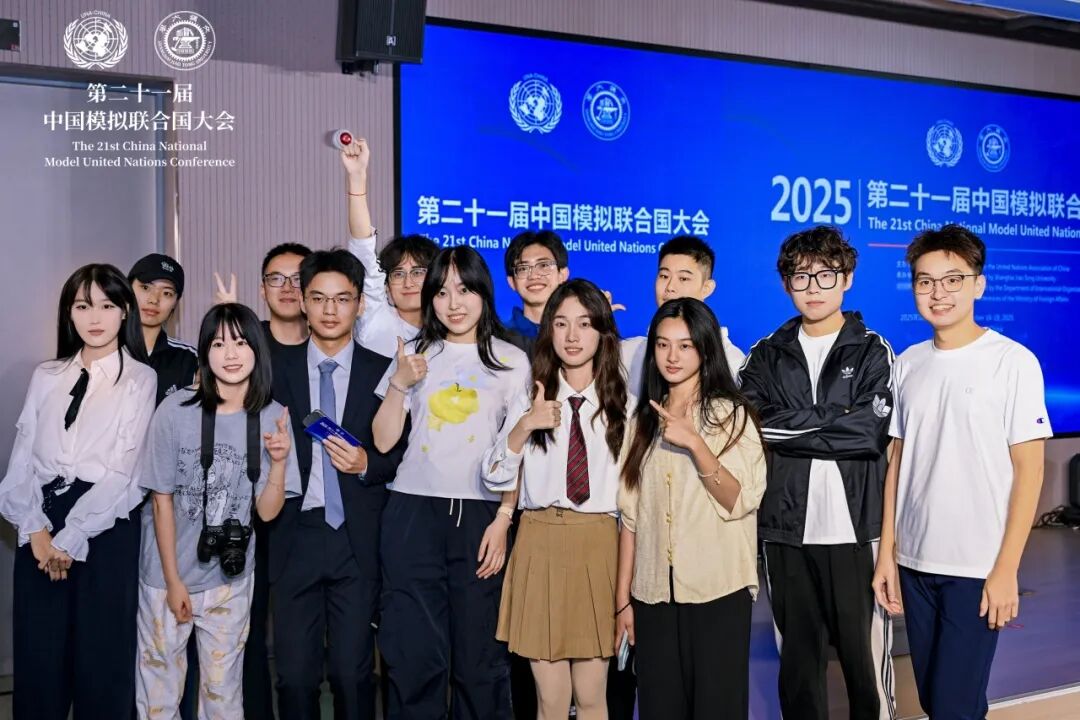
United Nations Association of China founded the China Model UN Conference in 2004. It is the most authoritative and the closest to real UN operations in China. The aim is to promote UN ideals, spread knowledge about the UN, and cultivate high-caliber young people with a global vision and the capacity to take part in global governance.
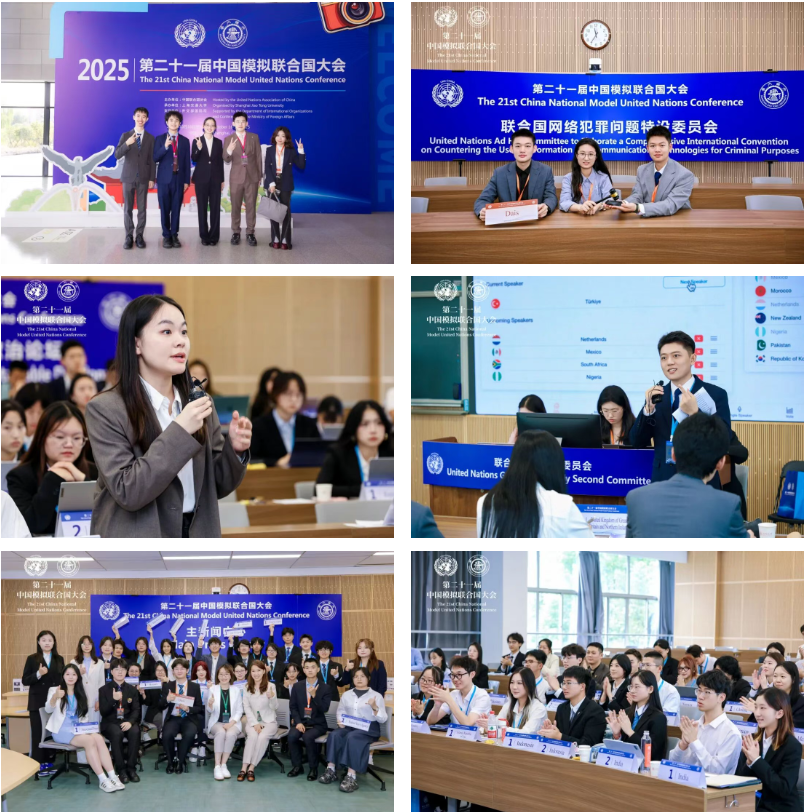
In the First Committee of the UN General Assembly, delegates examined the ethical dilemmas and security paradoxes brought by “military AI.” In the Second Committee, they argued for “strengthening the multilateral trading system and meaningful trade liberalization” and looked for common ground. In the Third Committee, they turned “promoting the realization of the right to development” into concrete actions. In the Tenth Emergency Special Session, they faced the Israel–Palestine issue and felt both the value of peace and the weight of diplomacy. At the High-Level Political Forum on Sustainable Development, they mapped out a future for “accelerating the global energy transition and expanding renewable energy,” showing deep concern for the planet. In the Ad Hoc Committee on Cybercrime, they contributed ideas for an orderly and secure digital future. In the main press room, “reporters” from major outlets followed developments in real time and shaped the course of the meetings.
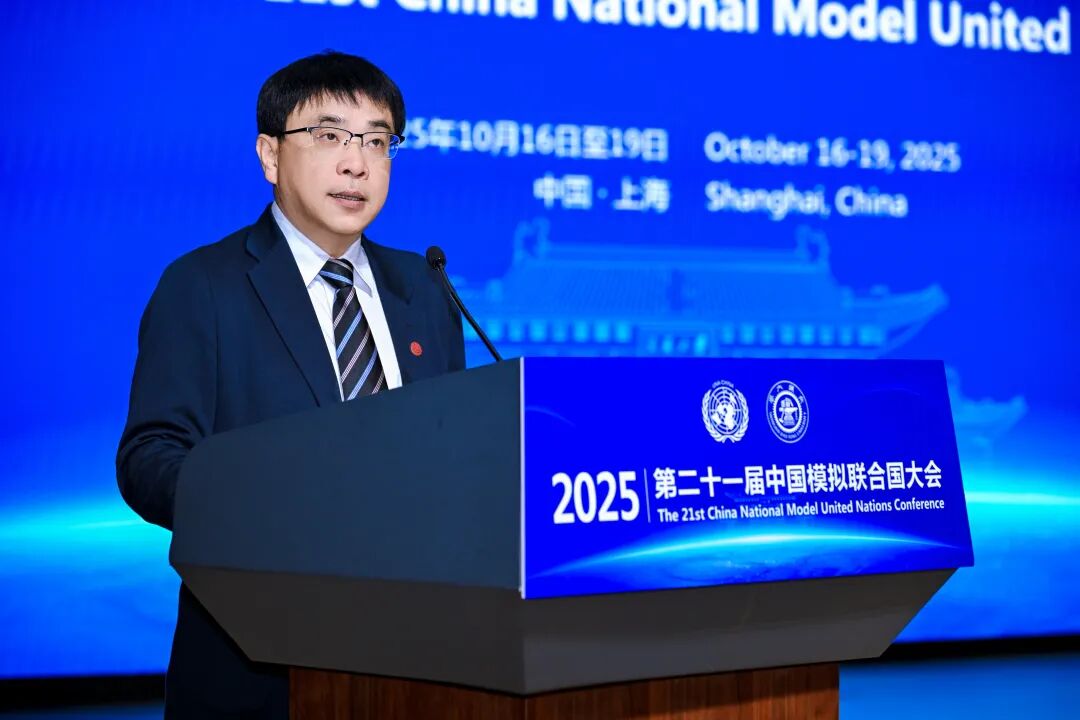
On the afternoon of October 19, the closing ceremony took place in the A100 Lecture Hall of the Student Center on SJTU’s Minhang campus. Ying Wang, Deputy Director-General of the Association, and Cheng Zhou, Deputy Party Secretary of SJTU, delivered remarks.
Awards were announced at the ceremony. The conference recognized delegates for their insight into complex issues and their ability to foster cooperation. The students were not only actors and participants in the present. They were also pioneers and problem-solvers for the future. They defended the interests of their assigned countries while seeking cooperation and building consensus, showing outstanding global vision and a strong sense of responsibility.
From simulation to practice — and from SJTU to the world — SJTU has deeply integrated global competence into its talent development system. More students now take internships and jobs in the UN and other international organizations. They make China’s voice heard on the world stage and contribute SJTU’s wisdom to building a community with a shared future for humankind. 